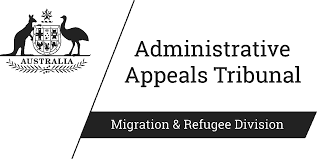
When to apply to AAT (Administrative Appeals Tribunal) to review visa refusal decision?
Visa refusal & AAT review is often quite scary for anyone whose visa application was refused (or visa cancelled). When you received a visa refusal, you may have the right for AAT review of the visa refusal decision. Click here to learn more about how to calculate when you must apply for an AAT hearing and the types of decision that can be reviewed by the AAT.
How AAT perform its duty
The AAT’s duty is to make the correct and preferable decision using the evidence (including what you say during the hearing). The AAT can adopt whatever immigration policy it chooses, or no policy at all (but must have regard to the policy) in conducting the hearing: Re Drake and Minister for Immigration and Ethnic Affairs (No. 2) (1979) 2 ALD 634 at [640].
At the AAT review, the question is not whether the Department’s decision made was the correct or preferable one. The question for the AAT is whether the decision was the correct and preferable one on the evidence for it: Drake v Minister for Immigration and Ethnic Affairs (1979) 46 FLR 409 at [page 11]. In addition, it is for the AAT to reach its own decision using the evidence, including any new, fresh, additional or different evidence that had been received by the Tribunal as relevant to its decision.
The AAT is independent of the Department and is free to adopt reasoning entirely different from the reasoning which led to your visa refusal or visa cancellation.
In the case of DFQ17 v Minister for Immigration and Border Protection [2019] FCAFC 64, the Court was asked to determine if the visa refusal letter state when an application for a merits review with the AAT must be lodged to review the decision.

Deadline for applying to AAT
Usually in a visa refusal letter or notification, it will state something like “this letter was mailed to an Australian address from within Australia, you are taken to have received it seven working days after the date of this letter”. And “you are entitled to apply to the Administrative Appeals Tribunal (AAT) for a merits review ….” An application for merits review of the decision must be given to the AAT between 2 and 70 days after the day on which you are taken to have received the refusal notification.
When or the number of days you must lodge an AAT application depend on the type of visa subclass (that is, Part-5 decision (see section 338 and 347; reg. 4.10) or Part-7 decision (see section 412; reg.4.31)) and whether you are in detention or not. Generally, if you are held in detention you will have either 2 (Part-5 decision) or 7 days (Part-7 decision) to apply for AAT review of the decision to refuse your visa application.
In addition, you may only be able to apply to the AAT to review of the decision to refuse your visa application if you are physically present in Australia when you lodge the AAT review application.
Section 66(2)(d)(ii) of the Migration Act 1958 says that notification of a visa refusal must, if you have an AAT review right, state the time in which the application for review may be made. A failure to state when you must lodge an AAT review application, by virtue of section 66(2), you have not been notified of the visa refusal decision. This was the approach taken in Zhan v MIMIA [2003] FCA 327; 128 FCR 469 at 483 [62].
The reason why the visa refusal notification must state when you must lodge your AAT review application is because neither the Court nor the AAT is empowered to give any extension of time. Allsop J in Zhan said that Parliament requires the Minister or his delegate to provide enough information to the AAT review applicant to facilitate the timeous filing of an application for review. Gray J in Chan v MIMIA [2003] FCA 1292; 134 FCR 308 at 320 [45] said section 66(2) is to ensure that rights of review of a visa refusal decision operates fairly, that is, providing complete information, including when an application for merits review at the AAT be lodged so as to allow a fair chance of engaging the review process (DFQ17 at 52 ).
In DFQ17, Perram J said (at 58) the visa refusal notification must provide complete and clear information, that is, must state the last day an AAT application can be lodged.
If the visa refusal notification does not state when you can be lodged a merits review to the AAT, then it is taken that the visa refusal notification has not be been given to the visa applicant.
You should be aware that the AAT is not required to refer to every matter in your representations in order to complete its jurisdictional task: Navato v Minister for Home Affairs [2019] FCAFC 135 at [88]; Carrascalao v Minister for Immigration and Border Protection [2017] FCAFC 101; 242 FCR 352 at [45].

AAT “remits” means you have won your case.
In some cases the Tribunal may be able to grant you the visa, click here to learn more.
Australian migration law is complex and difficult to understand, contact our immigration lawyer for a consultation (fee applies) to help you decide if you can apply to the AAT for merits review (click here to find out how an immigration lawyer or registered migration agent can help you). Click here to learn more about AAT. You may also refer to our FAQs for answers regarding visa application or visa cancellation by clicking here or here.


041 222 4020 or WeChat: AUDvisa
This article is not intended to be or taken as migration legal advice. The author of this article disclaims any liability for any action or omission on the information provided or not provided in this article. You should always consult an immigration lawyer or a registered migration agent to form an informed opinion on your immigration matter.



